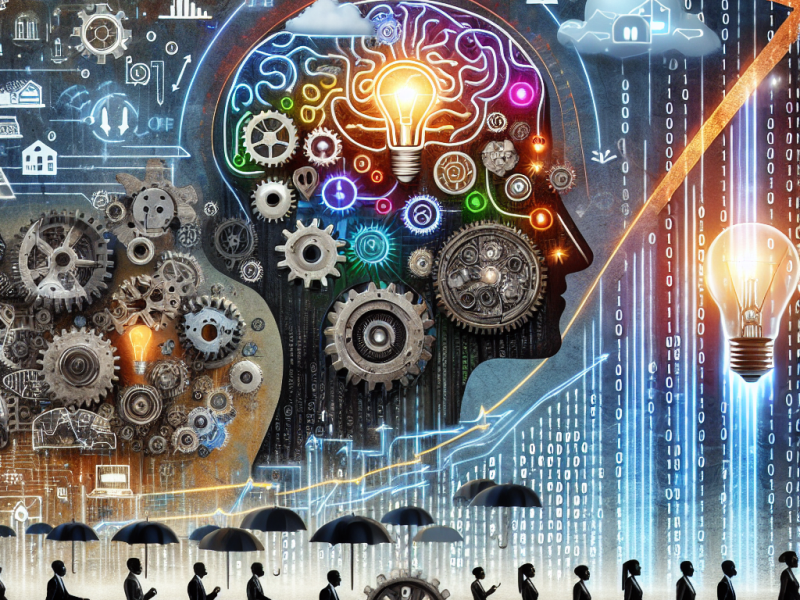Artificial Intelligence (AI) is no longer a futuristic concept—it is a cornerstone of modern business strategies. For organizations aiming to remain competitive in an increasingly digitized world, AI offers powerful tools to enhance efficiency, drive innovation, and solve complex challenges.
Over the past decade, AI has transitioned from being a support technology that automates mundane tasks to an intelligent system capable of learning, adapting, and making data-driven decisions. This blog delves into how AI’s evolution continues to shape and redefine business landscapes.
The Evolution of AI in Business
AI’s journey in the business domain began with simple automation, primarily designed to streamline operations, reduce costs, and minimize human errors. These early applications focused on repetitive, rule-based tasks, such as data entry and inventory management.
However, as advancements in machine learning (ML), natural language processing (NLP), and big data analytics took center stage, AI evolved into a proactive intelligence system. Today, businesses leverage AI to:
- Predict customer behavior using advanced data analytics.
- Personalize user experiences through recommendation engines.
- Enhance decision-making with real-time insights.
For example, e-commerce platforms use AI to analyze vast amounts of customer data, enabling them to tailor recommendations and boost conversions. This evolution marks a significant shift from task-oriented automation to dynamic, intelligence-driven solutions.
The Power of Adaptable AI Solutions
One of AI’s most significant advantages is its adaptability. Modern businesses operate in fast-changing environments where static solutions quickly become obsolete. Adaptable AI systems learn continuously, refining their algorithms to respond to shifting demands and market trends.
Key features of adaptable AI solutions include:
- Self-learning capabilities: AI systems use historical and real-time data to improve performance over time.
- Scalability: They can handle increasing workloads without compromising efficiency.
- Versatility: From automating workflows to optimizing customer engagement, AI adapts to various use cases.
For example, in the retail industry, adaptable AI solutions enable dynamic pricing based on market conditions, inventory levels, and competitor activity. By implementing such solutions, companies can maintain agility and enhance their competitive advantage.
Future-Proofing Your Business with AI
Future-proofing is no longer optional; it’s a strategic imperative for businesses in today’s volatile environment. AI empowers organizations to anticipate and adapt to future challenges by:
- Providing predictive analytics: AI forecasts market trends, enabling businesses to make proactive decisions.
- Streamlining operations: Routine tasks like scheduling and reporting are automated, freeing up human resources for strategic roles.
- Mitigating risks: AI’s ability to detect anomalies and analyze risk factors helps businesses avoid potential pitfalls.
Consider the financial sector, where AI-driven predictive models assess market fluctuations and guide investment decisions. Similarly, supply chain managers rely on AI to anticipate disruptions and devise contingency plans, ensuring operational continuity.
Industry Challenges Addressed by AI
AI’s versatility allows it to tackle critical challenges across various industries:
- Healthcare :AI assists in diagnosing diseases with higher accuracy, personalizing treatment plans, and accelerating drug discovery. For instance, AI-powered imaging tools identify early signs of illnesses like cancer, saving countless lives.
- Finance: Financial institutions utilize AI to improve fraud detection, risk assessment, and customer service. Algorithms analyze transaction patterns in real-time, flagging suspicious activities before they escalate.
- Retail: From optimizing inventory levels to enhancing the shopping experience with personalized recommendations, AI transforms how retailers engage with their customers.
- Manufacturing: AI streamlines production processes, reduces downtime through predictive maintenance, and ensures consistent product quality.
- By addressing these challenges, AI not only enhances efficiency but also drives innovation and competitive growth.
The Integration of AI Across Diverse Sectors
AI’s impact is profound and widespread, touching virtually every industry. Some notable examples include:
- Manufacturing: AI optimizes assembly lines, monitors equipment for predictive maintenance, and reduces waste. Automation powered by AI leads to higher efficiency and cost savings.
- Logistics and Supply Chain: AI streamlines supply chain operations by predicting demand, optimizing delivery routes, and enhancing inventory management. Logistics giants like FedEx and UPS rely heavily on AI for route optimization, saving time and fuel costs.
- Education: AI-powered learning platforms offer personalized educational experiences, adjusting the pace and content based on individual student needs. This revolutionizes traditional teaching methods, making education more accessible and effective.
- Customer Service: Chatbots and virtual assistants powered by AI handle customer inquiries 24/7, improving response times and reducing operational costs. Businesses benefit from enhanced customer satisfaction and brand loyalty.
Ethical Considerations and Challenges in AI Implementation
Despite its numerous benefits, integrating AI into business operations presents challenges:
- Data Privacy: Companies must ensure compliance with regulations like GDPR to protect user data.
- Bias in Algorithms: AI systems need to be carefully trained to avoid perpetuating biases in decision-making.
- Integration Costs: Implementing AI requires significant upfront investment in technology and talent.
Addressing these issues requires a thoughtful approach, including robust data governance frameworks and ongoing training for AI systems to remain unbiased and effective.
From automation to intelligence, AI continues to redefine the boundaries of what businesses can achieve. Its adaptability, predictive capabilities, and problem-solving potential make it an indispensable tool for organizations striving to thrive in a competitive landscape.
As AI evolves, its integration across industries will deepen, unlocking unprecedented opportunities for growth and innovation. Businesses that embrace AI today position themselves as leaders in tomorrow’s markets, leveraging technology not just to adapt but to shape the future.
The journey of AI is far from over, and its potential to transform industries remains vast and promising. As we look ahead, one thing is clear: AI is not just a tool for the future—it is the driving force of progress today. Ready to transform your business with AI? Contact us today to get started!

